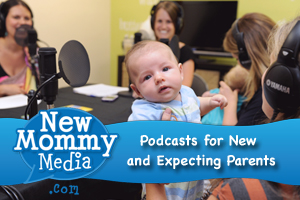
For a lot of women, pregnancy is a time that is both exciting and stressing. For women with a disability, conceiving a baby, pregnancy, and taking care of the child, all come with a different set of challenges. Negative attitudes persist in the society with regards to women with a disability mothering children and these make things all the more difficult.
If you are a woman with a disability and are pregnant or considering having a child, you don't have to question your decisions. Yes, the going will be tough but if you take care of a few things, you and your child are sure to be alright.
Here are some tips that you will find useful.
Don't Forget Your Disability Specialist
Your disability specialist may not know a lot about conceiving or pregnancy, but he does know everything about you and your limitations. Before you conceive or as soon as you know that you're expecting, do make sure you pay your specialist a visit.
Not only will the doctor have useful advice to share with you, he will also be able to tell if the medications you are taking can be continued or if you need to take new ones.
Find a Good Obstetrician
A regular obstetrician-gynecologist may not be prepared to handle your pregnancy. Some obstetricians may not even be in favor of your decision to have a child. As such, it is very important to find a specialist who not only is prepared to handle pregnancies involving women with a disability, but is also supportive and positive about your decisions.
Begin your search for a good ob-gyn as soon as you can. An ob-gyn can offer valuable advice even before you conceive. Do ensure that the ob-gyn's clinic is easily accessible by wheelchairs or mobility scooters. Examination tables and scales need to be accessible too.
At times, disability specialists may be able to refer you to a good ob-gyn. In such a case, you can be sure that both specialists will consult each other and ensure that you and your baby are fine.
When you do find a good ob-gyn, make sure that all physicians working with or under the ob-gyn are aware of your condition and specific needs.
Be Prepared for the Pregnancy
Whether you're planning to conceive or are already pregnant, you need to be prepared for the pregnancy and the arrival of the baby. If you won't be able to handle all baby care tasks single-handedly, you may find it helpful to consult an occupational therapist.
An occupational therapist can suggest techniques that will enable you to be an active participant in parenting instead of being just an observer. The occupational therapist can also provide designs for baby care equipment so that you can hold, feed, and play with your child comfortably. For special baby care equipment, you may also need to get in touch with a rehabilitation or mechanical engineer.
Further, you'll need to take care of yourself so that the pregnancy and delivery can go smooth. Your ob-gyn may prescribe certain medications for you. Your disability specialist might advise you on your daily nutritional intake. You can also get in touch with a nutritionist for the same. If you need to get in better shape before you conceive or deliver, a physical therapist can help you.

Get the Facts Right
You might visit different doctors and all of them might have something different to tell you. You certainly don't want to follow wrong advice so it's best to get the facts right on your own.
First and foremost, remember that just because you have a disability, doesn't mean your child will too. Even if you have a genetic disorder, don't assume or let anyone make you believe that the disorder will be passed on to your child. These things can be determined easily with the help of a prenatal testing.
You may want to see a genetic counselor to assess the probability of your child inheriting your disability. The counselor will take your age and family medical history into account, and also consider your blood tests, amniotic fluid analysis, fetal cells examination, and sonography before coming to a conclusion.
At the same time, be wary of the problems that you'll have to face while being pregnant. Pregnancy can affect the mobility of most women and if you have limited mobility, you might have to face more trouble. Pregnancy causes the body's center of gravity to change and by the end of the second trimester, this could impact transfers and walking.
Those who can walk a bit may find using wheelchairs or Pride lift chairs comfortable, but using these devices full time may lead to permanent loss of functioning. Your disability and occupational therapists will be able to suggest the right things for you.
Furthermore, pregnancy causes back pain in almost all women during the third trimester. As people with a disability are more vulnerable to back pain, you could experience pregnancy-related back pain much earlier. Women with a disability may also feel more fatigued than those without a disability.
Other problems you could face are urinary tract infection, edema, and autonomic dysreflexia. Of course, your ob-gyn will be able to take care of it all!
Conclusion
Going through pregnancy and caring for a child are certainly more challenging for women with a disability. But don’t let your disability get in the way of experiencing the joys of pregnancy and motherhood.
Make use of the tips mentioned here and you’re sure to be on the right path!








